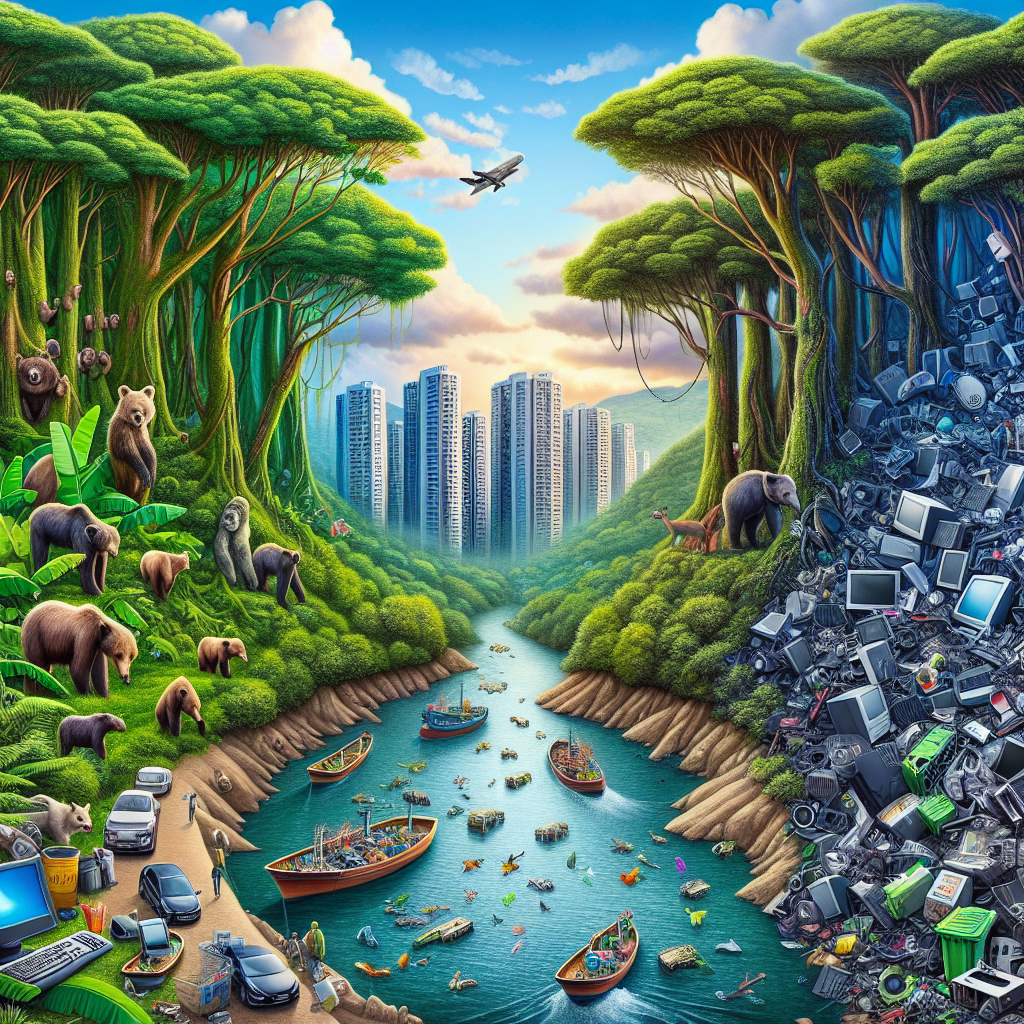Blog Ecobraz Eigre

Why Brazil is one of the largest producers of electronic waste in the world
Brazil is among the world's largest producers of electronic waste due to the exponential growth in the consumption of electronic equipment, inadequate collection and disposal infrastructure, and legislation that is still evolving. This article analyzes the factors that contribute to this scenario, based on official data and current regulations.
Growing Consumption of Electronic Equipment
With the expansion of access to technology, the demand for electronic devices in Brazil has increased significantly. Reports from the National Institute of Metrology, Quality and Technology (INMETRO) indicate that the number of devices purchased each year has boosted the volume of obsolete or unused products generated.
Volume of Electronic Waste Generated
According to data from the National Solid Waste Management Information System (sinir.gov.br), Brazil contributes millions of tons of electronic waste each year. This figure places the country among the largest regional producers, a direct reflection of the increase in disposal and the limited longevity of the products.
Challenges in Waste Collection and Logistics
The collection and recycling infrastructure faces structural limitations that hinder the proper handling of electronic waste. The lack of accessible collection points and the absence of integrated systems result in improper disposal, aggravating environmental impacts. To ensure proper disposal, it is recommended to make an appointment for electronic waste collection.
Regulatory and Legal Aspects
Relevant Brazilian legislation includes the National Solid Waste Policy (Law No. 12.305/2010), which establishes shared responsibilities between generators and those involved in the life chain of electronic goods. However, effective implementation and enforcement still face challenges, as highlighted on the Chamber of Deputies portal (camara.leg.br).
Security in the Disposal of Electronic Media
The disposal of media such as hard disks requires additional care to ensure information security. Sanitization techniques and specialized protocols are essential to avoid leaking sensitive data. It is recommended that disposal be planned with an appointment for safe hard drive sanitization.
Environmental and Social Impacts
Electronic waste has toxic components and materials that are difficult to break down, which poses risks to public health and the environment. Lack of proper disposal can lead to soil and water contamination, reinforcing the need for sustainable management practices.
Brazil, despite its technological potential and growing consumption, still needs to advance in awareness, infrastructure and regulation to mitigate the negative effects of e-waste. The adoption of appropriate collection and disposal procedures, with legal and technical backing, is imperative for a sustainable future.

Deixe um comentário
O seu endereço de e-mail não será publicado. Campos obrigatórios são marcados com *